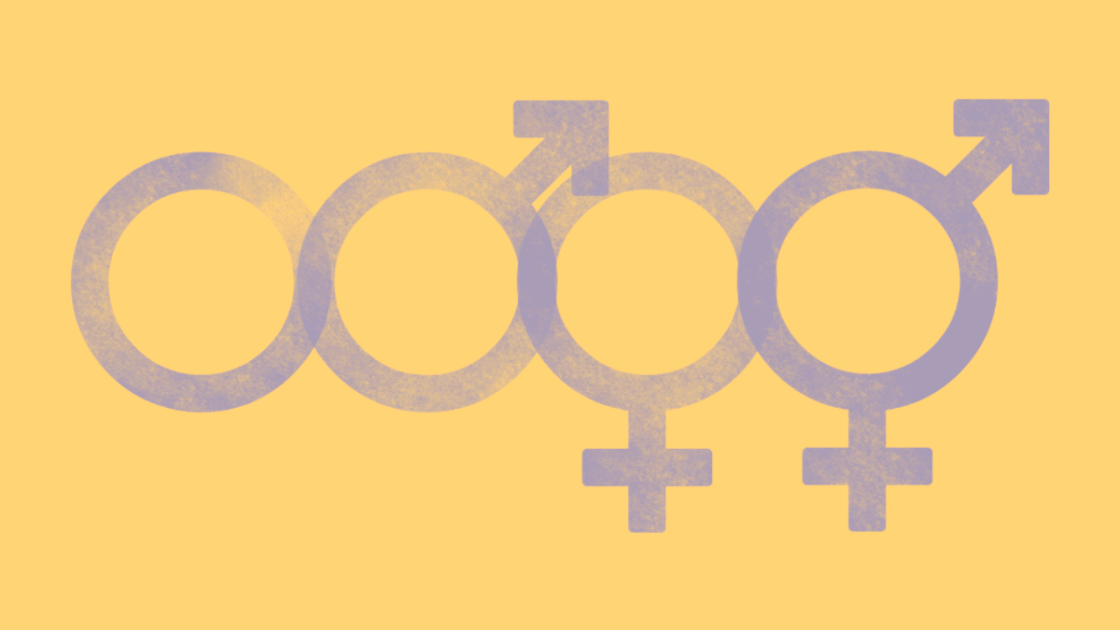What does it mean to be Intersex?
Learn more about what it means to be intersex

Intersex is a term used for the range of sex characteristics that naturally can occur within humans. Our sex characteristics are our internal gonads, external genitalia, chromosomes, hormones and secondary sex characteristics.
What is someone’s sex made up of?
Our sex is made up of five components or five sex characteristics
- Internal gonads: Testicles, ovaries
- External genitalia: Penis, Vulva
- Chromosomes: XX or XY or other variation
- Hormones: Such as testosterone, estrogen, progesterone etc
- Secondary sex characteristics: Physical traits can appear during puberty such as facial hair and breasts
What does being intersex mean?
If you think of sexual characteristics as being on a scale, having traditionally male reproductive parts/system/organs would be on one end of the scale and traditionally female reproductive system on the other. The characteristics of someone who is intersex would vary moving up and down this scale. This means an Intersex person would have a variation of sexual characteristics.
Intersex is a general term used for a person who is born with a reproductive or sexual anatomy that doesn’t seem to fit the traditional medical definitions of female or male. When defining intersex it is important to understand that there is no such thing as identifying a ‘true’ sex at birth. The two categories of seemingly ‘true’ sex (i.e male and female) do not reflect the entire spectrum of sex characteristics. There is no wrong way to have a body.
What are examples of being Intersex?
An example of an Intersex person is someone who might be born appearing to be female on the outside, but having mostly male-typical anatomy on the inside. Or a person may be born with genitals that seem to be in-between the usual male and female types—for example, someone may be born with a noticeably large clitoris, or lacking a vaginal opening, or someone may be born with a notably small penis, or with a scrotum that is divided so that it has formed more like labia. A person may also be born with a mixture of genetics, so that some of their cells have XX (female) chromosomes and some of them have XY (male).
Can you become intersex later in life?
Our sex characteristics are set out from birth, whether we are intersex or not. However, the fact that someone has an intersex body can become apparent at different times in their life: at birth, during childhood, in puberty or even in adulthood. Depending on the specific life circumstances and the degree of taboo in their environment, a person might learn that they have an intersex body at a very early stage or later stage in life. Some intersex people never find out at all.
Do intersex people need medical treatment?
Normally after the birth of a child the doctor will fill out the sex of the baby on their birth cert and are given the option of either male or female. They normally makes this judgement from looking at the babies genitals and where a babies genitals are ambiguous (neither a traditional penis or vulva) doctors make a choice between male or female.
Intersex children have been at risk of medically unnecessary interventions and surgeries without their consent in order to make their bodies conform to societal definitions of gender. These surgeries can cause irreversible harm to a person’s reproductive and sexual organs. Parents of intersex children are often given misinformation about the necessity for “correctional” surgery on their child even though being intersex will not impact their health negatively.
There is a growing awareness among practitioners that surgeries on intersex children should be postponed until the child can decide for themselves. Treatments that aim to alter the sex characteristics of a child artificially towards female or male are a violation of the child’s right to physical autonomy and bodily integrity.
What is the Declaration of Malta?
The unanimous demands of the International Intersex Human Rights movement were laid out in the Declaration of Malta at the 3rd international Intersex Forum in 2013. The declaration demands that an end is put to the mutilating and “normalising” practices such as genital surgeries, psychological and other medical treatments. Instead intersex people must be empowered to make their own decisions and issues that affect their bodily integrity, physical autonomy and self-determination.
The Malta Declaration also emphasises that creating and facilitating supportive, safe and celebratory environments for intersex people, their families and surroundings is key.
Learn more about how to support the rights of intersex people.
Are there intersex support groups in Ireland?
Intersex Ireland
Intersex Ireland is an intersex advocacy community group in Ireland. They spread awareness on what it means to be intersex by sharing stories from the intersex community in Ireland. They also advocate for intersex rights; demanding the end to unnecessary medical surgeries and instead the provision of adequate medical care.
Organisation Intersex International Europe
The Oii (Organisation Intersex International Europe) advocate on the behalf of intersex people in Europe, click here to visit their website.
TENI
Teni (The Trans Equality Network Ireland) are also supportive of intersex people in Ireland, click here to visit the Teni website.
Read our article answering some of the frequently asked questions about being intersex.
Need more information?
We are here to answer your questions and talk through your options. Our online chat service is for 16 to 25 year olds and is available Monday to Friday, 4pm to 8pm. Chat to us now about your situation.
- Chat now to a trained Youth Information Officer
- Or leave us a message and we will email you back





